FREE COURSE: 15 ways to promote your music online and offline
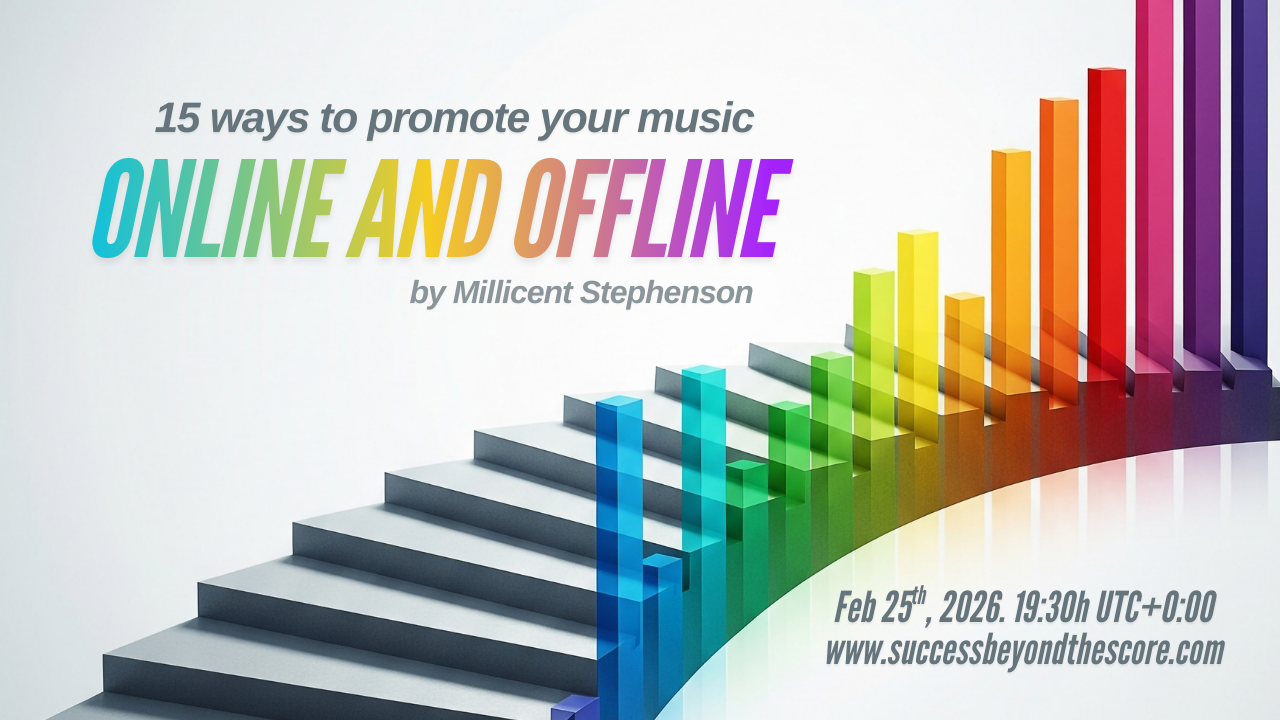
We are very pleased with the reception of the free webinar, "How to stream your live music performances". Seeing how useful the information was for our participants, we have decided to offer another learning opportunity at no cost.
This time, we are going to talk about how to get more people to learn about what you do. Whether you are a singer, musician, DJ or rapper, in this free Zoom webinar, Millicent will explain 15 tools you can use to grow your followers, mailing list, bookings, and sell your music.
You will learn:
- The difference between publicity, marketing and advertising.
- Seven reality checks for your promotion journey.
- Fifteen free or low cost tools for promoting your work.
Note that, while this webinar is part of the resources offered to our women's community Time For My Music, it is open to all genders. Men and people with diverse identities are welcome!
The date is Wednesday 25th February at 19:30h UK time. Sign-ups will open soon. In the ...
Listen again to S1, E26-30 of the podcast Success Beyond The Score
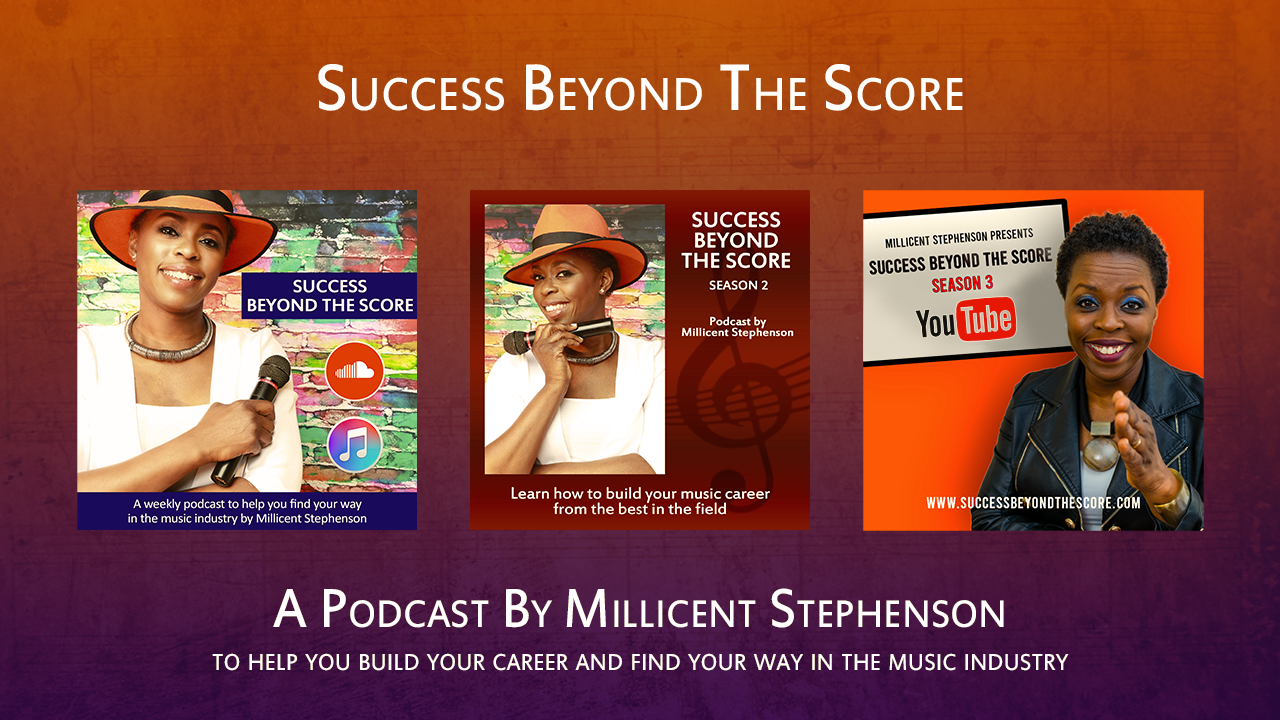
This is the final batch of episodes from season 1 of the podcast Success Beyond the Score. They share the theme of looking at the future, from what to do when setbacks in other areas of your life jeopardise your job, to how to use new technologies to share your music online, and what good habits will ensure the longevity of your career.
On Wednesday 28th January 2026, there is going to be a FREE COURSE expanding on the subject of music performance livestreaming, which is treated on episodes 27 and 28 of the podcast. You are still in time to sign up by clicking this link.
Here are the episodes:
26. What do you do when life happens to your online music?What do you do when everything is going in the right direction, and all of a sudden, you get a setback from nowhere? Today, Millicent explores how to deal with curveballs and unexpected life issues that make difficult to keep up with your online posting or work.
27. What equipment do you need to livestream?Are you interested in p
...
FREE COURSE: How to stream your live music performances
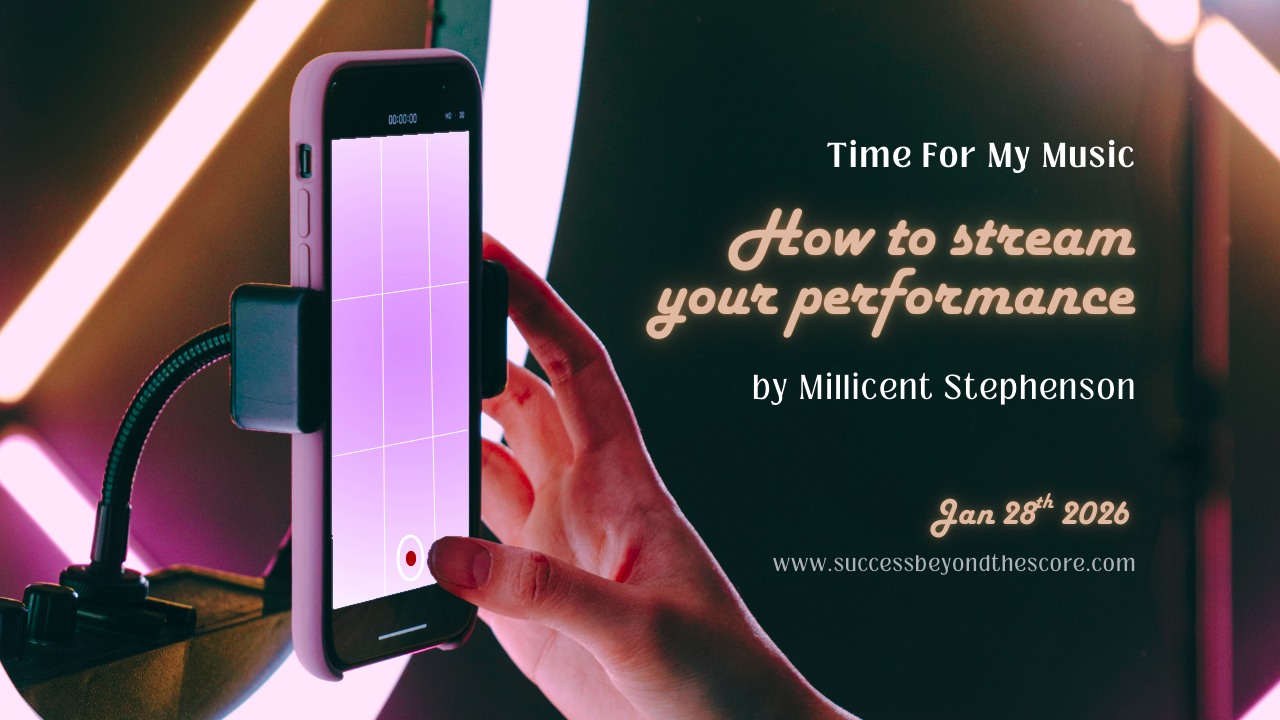
Would you like to learn ‘how to stream your live music performance on Facebook, YouTube, Instagram and TikTok’ to your followers? Do you wonder what equipment you need, or what buttons to press?
If so, Millicent will be running a FREE beginners’ session on Wednesday 28th January 2026, 7.30pm via Zoom. This session will cover:
1. The basic equipment that you may already have, and one other thing you really need (which does not cost the earth) to livestream.
2. How you can make sure your image and sound are captured properly.
3. The buttons to press and the boxes to fill in order to go live.
4. How to get viewers to your videos.
This session is for anyone who wants to perform their music on the internet to family, friends, followers or fans. If it sounds interesting, click here to sign up. And if you have any questions, you can ask Millicent directly at info@millicentstephenson.com
Please share!
Map out the way to your goals
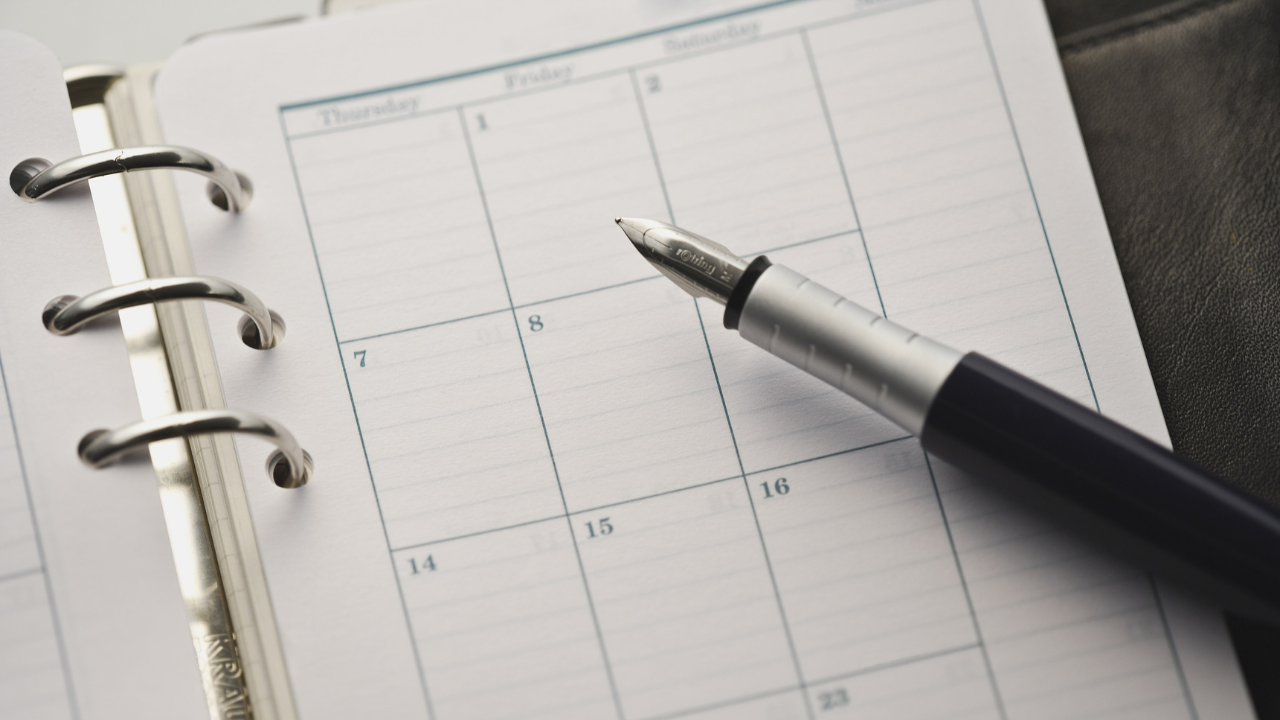
If you are like me, setting goals and targets is a great way to achieve musical progress. To help with this, in December, I purchased a Christmas present for me: a planner.
It might seem boring, but it's exactly what I need to get organised. I prefer paper and pen, so I can get in touch with the page and my thoughts more easily. Some prefer to use apps, and that is OK, too.
One thing I like about planners is that many have motivational statements on different pages. They remind me to keep going. Another is how their design makes it intuitive, easy and efficient to organise your thoughts.
Mine has a To-Do page for the month, which is great for listing the title of my monthly targets (e.g. MOT the car. Songs to learn for X gig). Then, there is a month at a view page, which helps me to allocate the tasks of my targets in the month (e.g. the day I will call the mechanic, the day I will practise a particular song). A month at a view also helps me to be more aware of how cluttered my li...
Listen again to S1, E22-25 of the podcast Success Beyond The Score
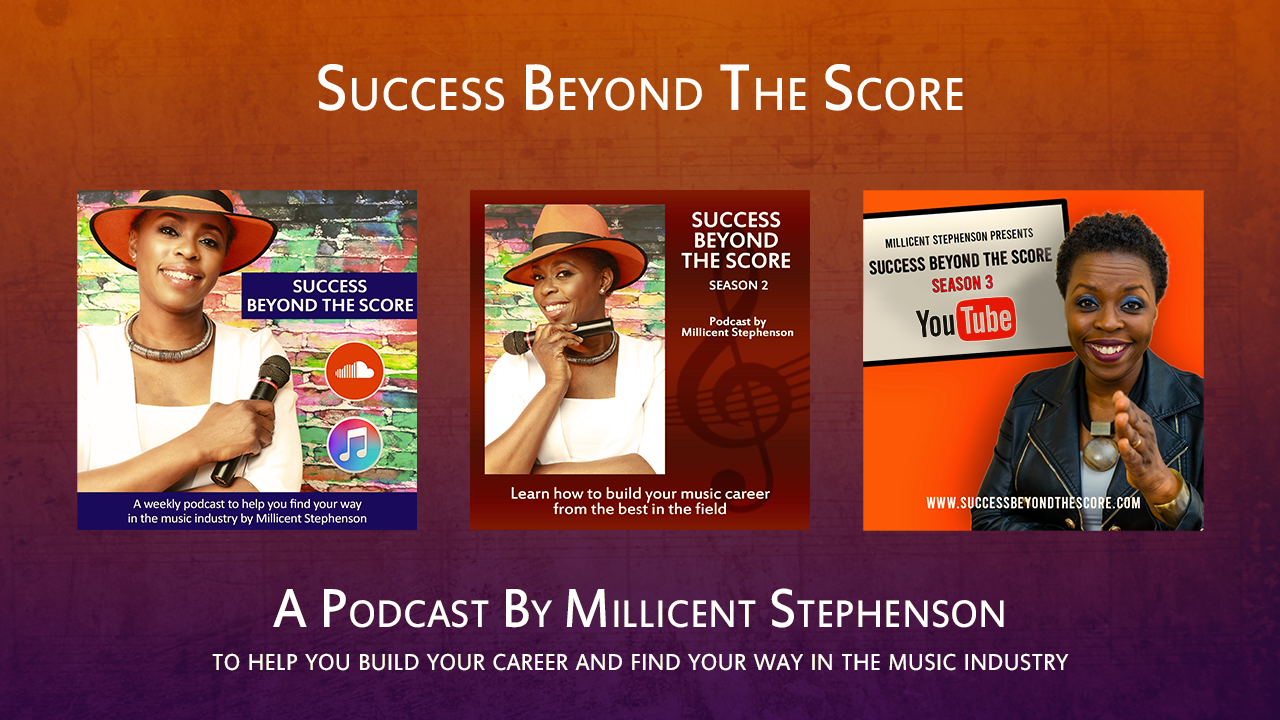
This next batch of episodes from the podcast Success Beyond the Score are all about earning money from your music on the internet. Whilst the panorama has changed significantly since the recording of this segment, it still contains valuable considerations and ideas to consider if you want to monetise your music online.
Have a listen:
22. How to make money from your music online.
How do you make money from your music online? Is it only through gigging, or is it about being a portfolio musician? How long does it take to make money?
23. 21 ways to make money from your music online.
Here is a road map for anyone wanting to create or develop earning from their music online. Covering selling, advertising, teaching, performing, services, sync and more.
24. 5 reasons for monetising your music online, now!Moving your music online with the intention of making money seems like the right thing to do, but how can you be sure? Millicent presents 5 reasons for monetising your music online
...
Millicent Stephenson is leaving Spotify
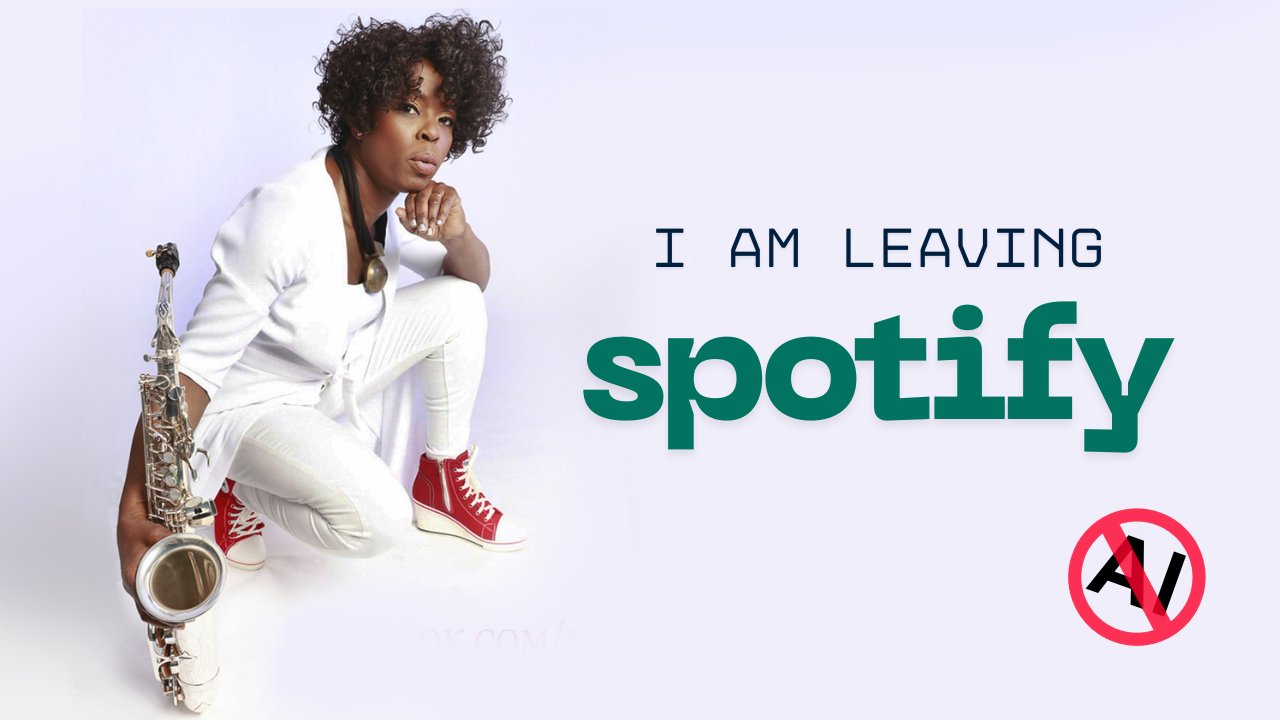
This is a reproduction of the statement posted on Millicent's main website on 20.12.25.
Whilst I am mainly a gigging musician, I have also written and produced music during my career. I have distributed my album Reflective Notes and my single Take Me To The King as physical copies, through the radio, and, as many other musicians, through streamings services, including Spotify.
As one of the largest providers of music streaming services in the world, Spotify was, for many years, the platform every musician wanted to grow in. Their reach is still enormous, yet there are several factors that have pushed me towards the decision of removing my music from it.
The main concern I have is the lack of regulation over music generated with artificial intelligence. In the last year, journalists and even casual listeners have uncovered that multiple “artists” verified by Spotify are not in fact human, but the result of using generative AI platforms like Suno or Udio. Said “artists” are boosted ...
Let 2026 be the year you achieve your vision

We know how it goes: every new year is the same old story. After two weeks of full gyms, busy workshops and classrooms, freshly opened notebooks and brand-new gadgets for all sorts of resolutions, most things gravitate back to their former state. Our storage rooms get a little more full, giving us more work when it is time for spring-cleaning, and we are left with a vague feeling of defeat.
However, it does not have to be like this. With thoughtful planning and pertinent research, you can bring your hazy dreams into focus, turning them into a clear vision that includes both a feasible destination, and the path to reach it. This will allow you to advance consistently, manage frustration as well as your expectations, be better equipped to deal with setbacks, and carry on beyond January 15th.
If you are going to dedicate what is left of December to define your new year's resolutions for 2026, Millicent's advice about the what, why, how, when and where of creating and achieving your visi...
Listen again to S1, E19-21 of the podcast Success Beyond The Score
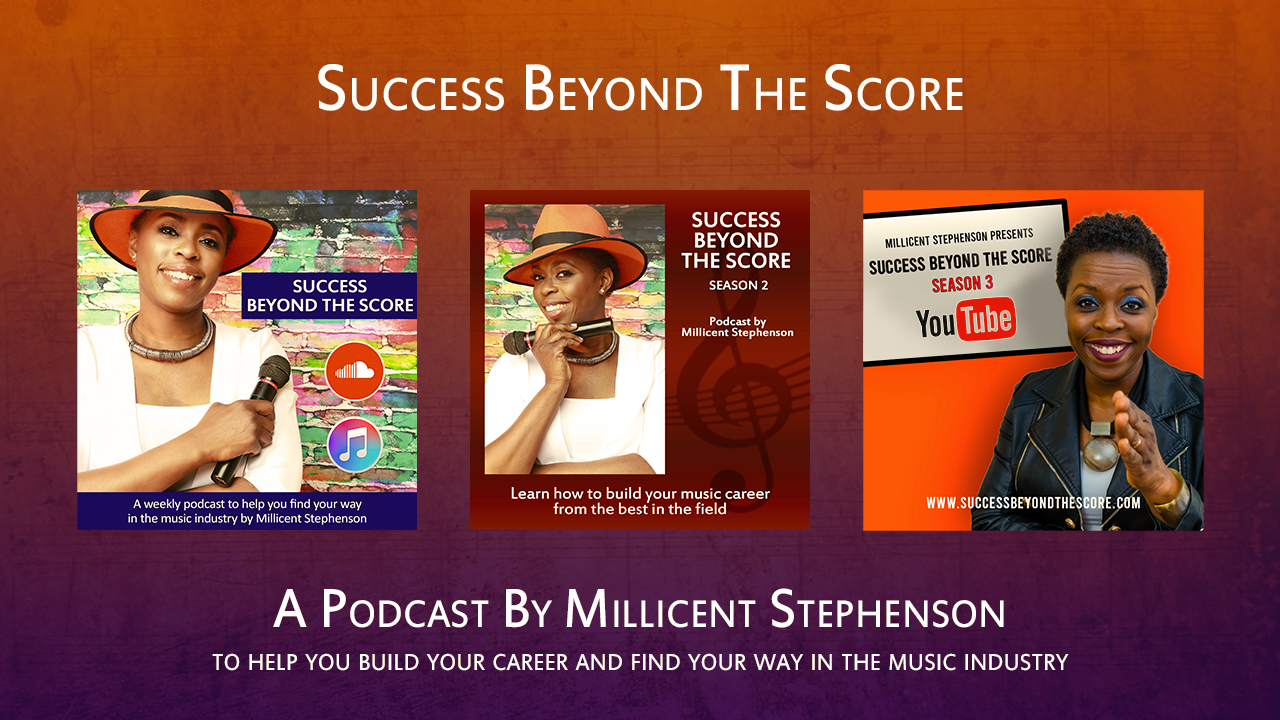
These episodes of the podcast Success Beyond the Score complete the segment about music press kits. If you want to learn more about how to make money from your music and how to promote yourself, be sure to join our mailing list to be notified of our offers on this and other topics.
Have a listen:
19. What should be your killer music track for your press kit?Sometimes, potential clients ask you for your music instead of your press kit. So, what should be your killer track, the one that gets them thinking you are the one to book? In general terms, what is the client looking for in your music?
20. How to make serious money from your musicWould you like to know how to increase your earning potential through your music? Would you like to earn the money you desire from your music? Millicent shares her experience of making a living from her music in this episode.
21. What are the top three essential things to have in your music press kit?Millicent wraps up her series on the Mus
...
In 2026, make time for your music
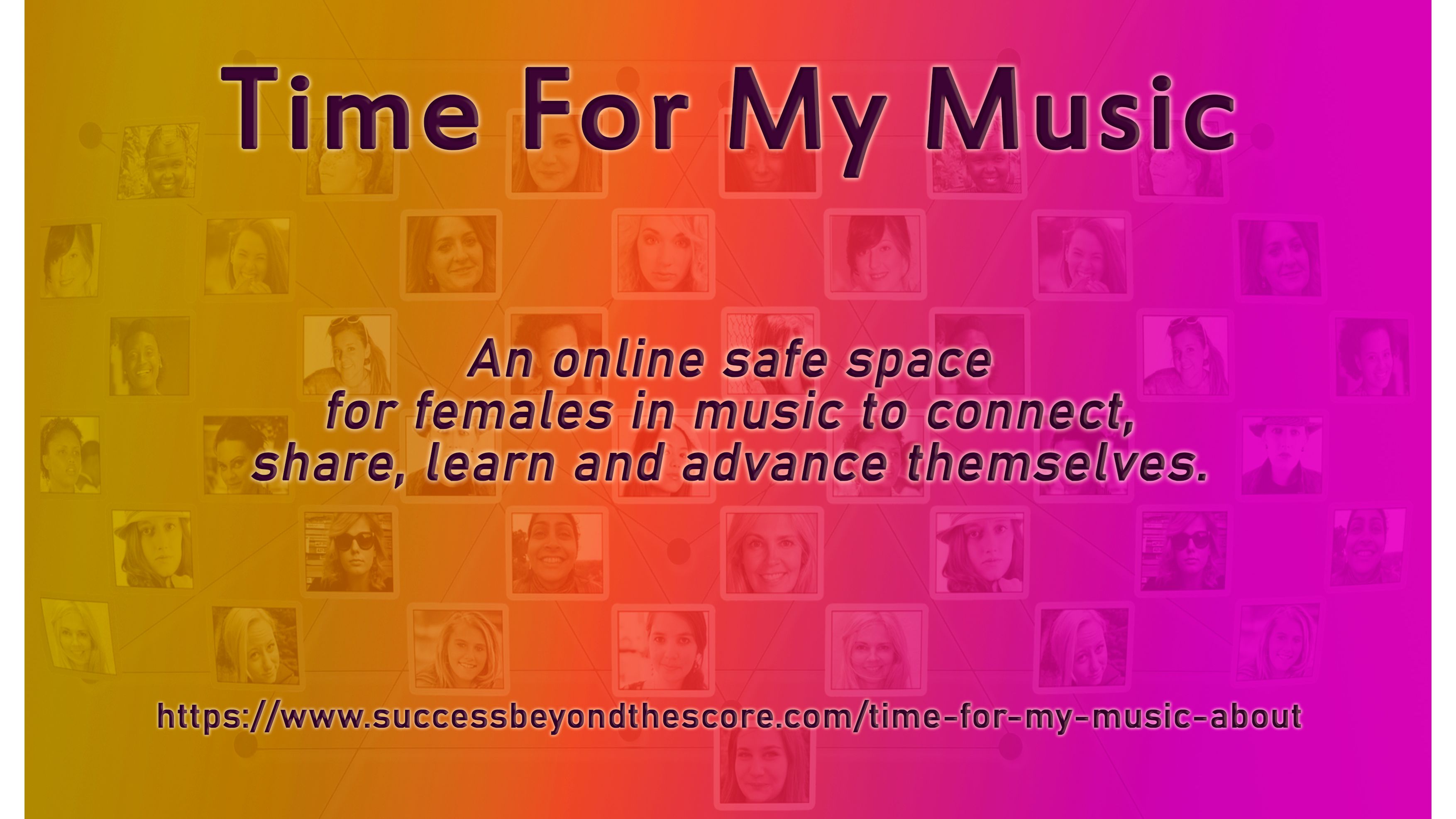
2026 is around the corner. If you are a woman who has been thinking about taking your music to higher grounds as part of your new year's resolutions, we have excellent news: Time For My Music will open its door for new members in January!
One of the most valuable resources you will get upon joining are the monthly workshops. Becoming part of the community grants you instant access to all the workshops that we have already had, which include topics like:
- How to edit backing tracks
- A.I., cookies and data protection
- Dealing with setbacks
- Creating and achieving your vision
Most importantly, you will be able to attend and interact live in the following workshops during the first half of 2026:
- How to broadcast your performance
- Health for musicians
- Starting from scratch
- Promoting yourself
- Legal requirements and your music
- Getting paid Q&A
If this sounds interesting, be sure to join our mailing list. That way, you will be the first to learn when signups start. You can read...
Listen again to S1, E14-18 of the podcast Success Beyond The Score
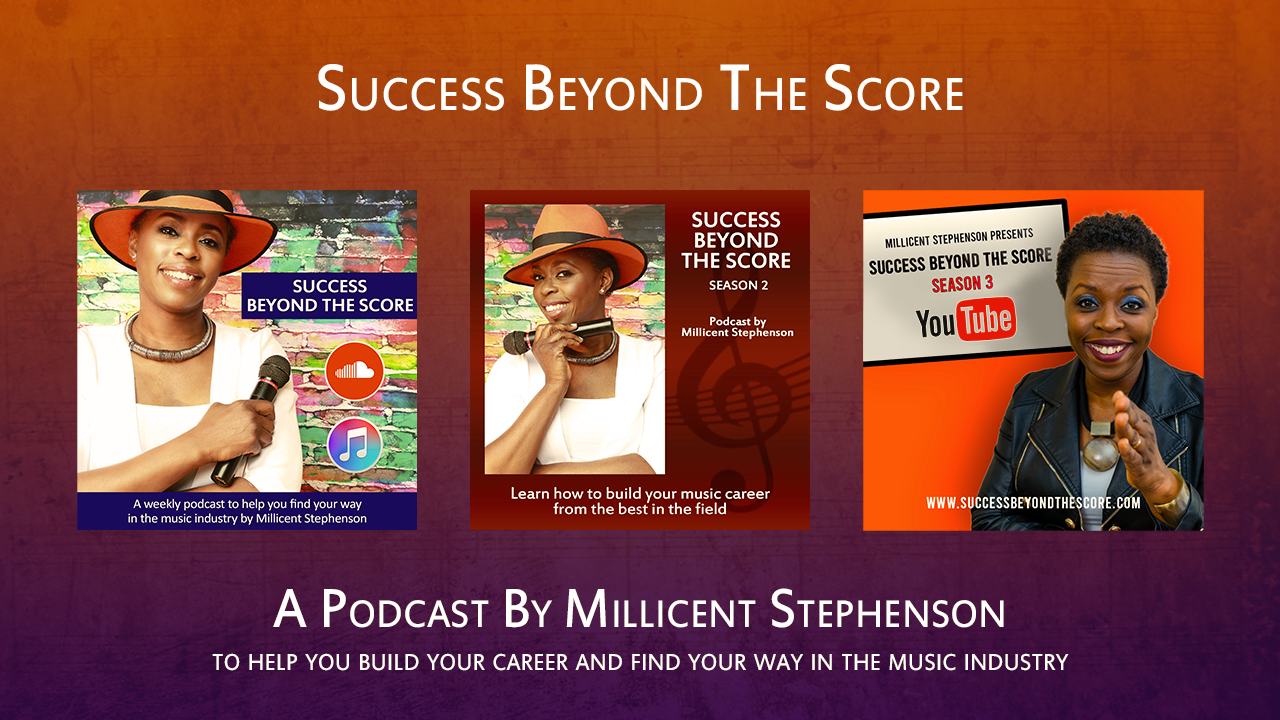
The following group of episodes of the podcast Success Beyond the Score are all about how to market yourself. While the event discussed in episode 14 has long since past, the process described is a good example of what to expect when trying to get that sort of gigs. From episode 15 onwards, Millicent will talk you through the design of your Music Press Kit.
Have a listen:
14. How to perform in the Commonwealth Games 2022
Would you like to perform in the Commonwealth Games in 2022, which are being held in the city of Birmingham and the West Midlands region, United Kingdom? In today's episode, Millicent explains how to get yourself in.
15. What should you have in your Music Press Kit?
What is a Music Press Kit? Is it different from an Electronic Press Kit? What should be in it? Whether you are in the early stages of your music or performing regularly, a Press Kit is a must.
16. How to write an artist bioWhat should you put in your music bio? How should it be written? What sho
...